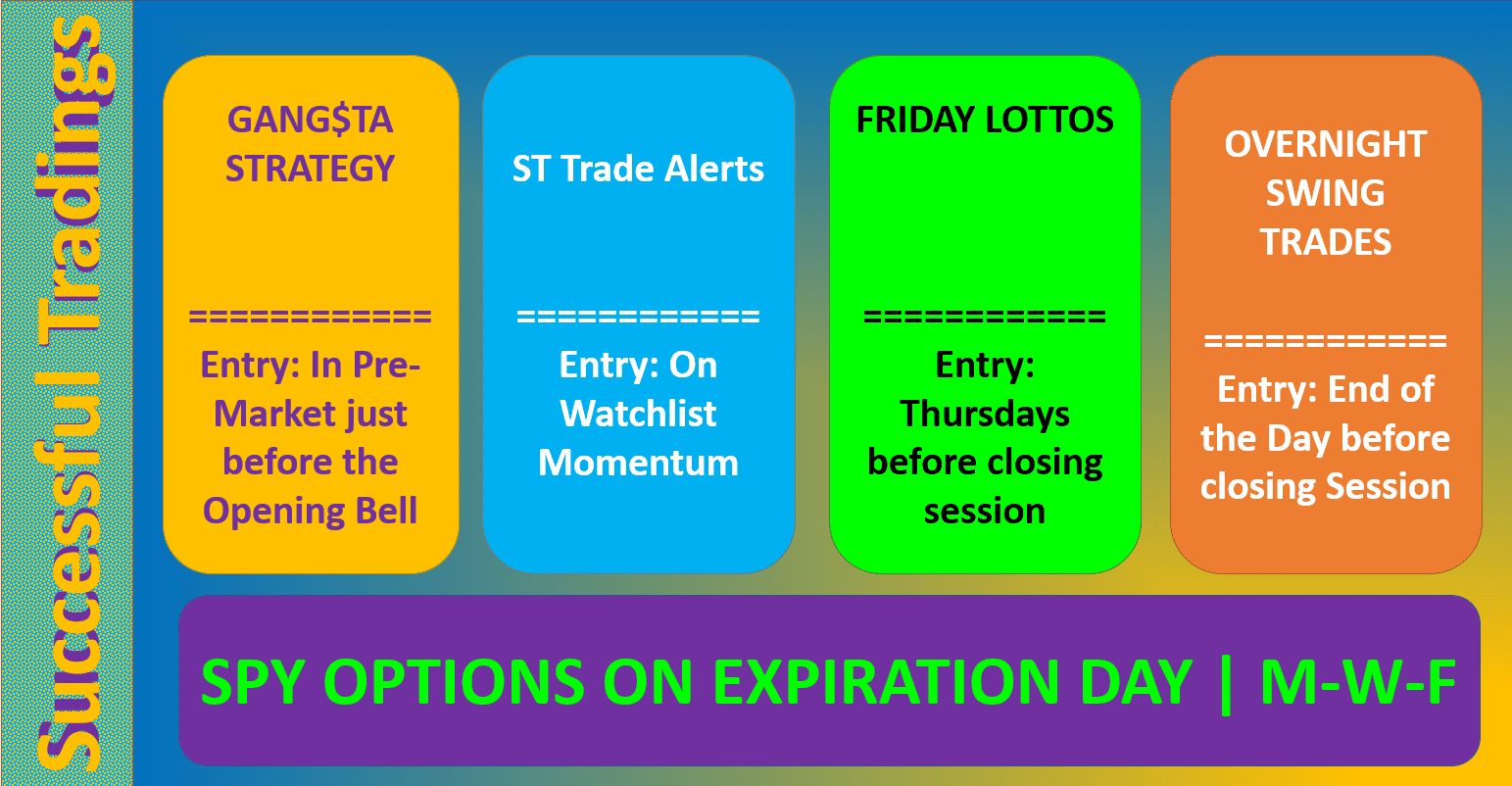
Image: successfultradings.com
Introduction to Options Trading
Options trading, often shrouded in a veil of complexity, offers astute investors a potent tool to amplify returns while mitigating risks. An option, akin to a contract, grants the buyer the right, but not the obligation, to purchase (in the case of a “call” option) or sell (in the case of a “put” option) an underlying asset at a predetermined price within a specified timeframe. This flexibility enables traders to tailor strategies that suit their investment goals and risk appetite.
Delving into Call Options
Consider a scenario where an investor named Anya believes that Apple’s stock price will rise in the coming months. Rather than purchasing the stock outright, Anya opts for a call option with an exercise price of $150. This contract gives her the right to buy 100 shares of Apple stock at $150 per share, regardless of its market price at the time of exercise. If Apple’s stock price soars to $170, Anya can exercise her right to purchase the shares for $150, realizing a profit of $20 per share or a total of $2,000 (assuming negligible premiums).
Understanding Put Options
Conversely, let’s introduce Boris, an investor who anticipates that Amazon’s stock price will decline. Boris purchases a put option with an exercise price of $2,000. This contract grants him the right to sell 100 shares of Amazon stock at $2,000 per share. If the stock price plunges to $1,800, Boris can exercise his option, selling the shares at the agreed-upon price and locking in a profit of $200 per share, or $20,000 in total.

Image: blog.dhan.co
Assessing Risks and Time Decay
It’s crucial to note that options trading carries inherent risks. The value of an option can fluctuate significantly based on factors like underlying asset price movements, volatility, and time to expiration. Another important concept is “time decay.” As the expiration date approaches, the value of an option erodes gradually, creating a sense of urgency for traders.
Leverage and Flexibility
The allure of options trading lies in its remarkable leverage potential. With a relatively small investment, traders can effectively amplify their profits. Additionally, options provide traders with exceptional flexibility, offering a spectrum of strategies to adapt to diverse market conditions.
Understanding Greeks: Delta, Gamma, Theta
To navigate the complexities of options trading, investors should familiarize themselves with “Greeks.” These metrics, such as Delta, Gamma, and Theta, measure the sensitivity of option prices to changes in underlying asset prices, volatility, and time remaining until expiration. These parameters are indispensable for comprehending risk and optimizing trading strategies.
Trading Options Example

Image: fintrakk.com
Conclusion
Options trading presents an alluring yet challenging avenue for investors seeking heightened returns. By grasping the concepts of call and put options, comprehending potential risks, and leveraging Greek metrics, traders can skillfully exploit the intricacies of this financial instrument.






